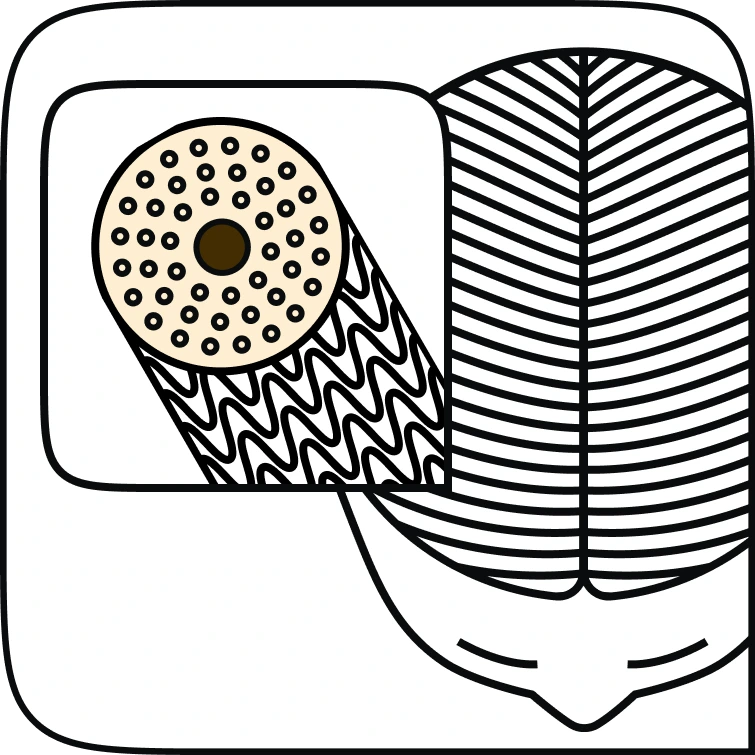Types of male hair loss
Hereditary hair loss is the most common form of hair loss in men, accounting for 95 percent of cases. Around 60% of men are familiar w... | more
Hair loss in men

Repeated damage to the hair – for instance through excessive handling during styling and haircare – causes the hair shaft to split and break off.
Severe hair breakage leads to thin, sparse hair and finally to thinning hair, which is often confused with pathological hair loss. When hair structure damage occurs, the hair breaks off over the scalp and the hair roots remain active.
Causes
The causes of such hair structure damage are many and varied. Usually these are external damaging influences, such as


If stress persists over a long period of time or if there is a particularly large number of burdens to overcome, this can lead to hair loss.
This phenomenon is caused by various neurotransmitters (messengers) that negatively affect the hair follicles. Each hair follicle is surrounded by a dense network of nerve fibres containing various neuronal messengers.
Stress increases the concentration of the key messengers and thus the number of nerve fibres in the hair follicles. If this happens during the transition of the hair from the growth phase to the resting phase, the hair follicle becomes inflamed and hair growth stops prematurely. The result is diffuse hair loss.
The easiest and most effective way to prevent stress-related hair loss is to not give stress a chance in the first place. Besides good time management, getting enough sleep also helps, so that the body can recover.
The best-known method of relaxation and stress-relief is yoga, a technique that originated in India involving set poses and breathing exercises. Autogenic training, a kind of self-hypnosis, can also restore a balance between states of tension and relaxation. Both yoga and autogenic training can be done at home, after a short familiarisation period.
If your hair loss does not subside, it is advisable to tackle the problem at its root – literally – with a product that, with a balanced combination of amino acids containing sulphur and B-group vitamins, helps to supply the hair with exactly the nutrients it needs to grow healthily. Pantogar® capsules and Pantogar® vegan capsules support your hair with special micronutrients.
Thyroid disorders can trigger hair loss. A thyroid disorder can be diagnosed by a blood test. The thyroid hormones T3 (triiodothyronine) and T4 (thyroxine), which influence the body’s metabolism and have a direct influence on hair-forming cells in the human organism, are responsible for hair loss.
An overactive thyroid (hyperthyroidism) manifests itself in thinner, finer and more brittle hair. Since the hair switches to the resting phase earlier, it only reaches a short length.
In the case of an underactive thyroid (hypothyroidism), the hair appears dull, lifeless, dry and brittle. Hair density and hair diameter may be reduced.
If the thyroid disorder is eliminated, hair loss can improve.
There is no correlation between the severity of hair loss and the intensity of the thyroid disorder. A severe hormone deficiency does not automatically lead to severe hair loss. And in reverse, severe hair loss can even occur if the thyroid is only slightly overactive or underactive. There are experts who consider the correlation between thyroid disorders and hair loss to be unproven and even unlikely.
Hair loss can also be caused by medication taken for an overactive thyroid. Examples include thyrostatics, carbimazole, thiamazole, methylthiouracil and propylthiouracil. Hair loss can also be caused by medications that interfere with the thyroid metabolism: iodides, levothyroxine, amiodarone and lithium.